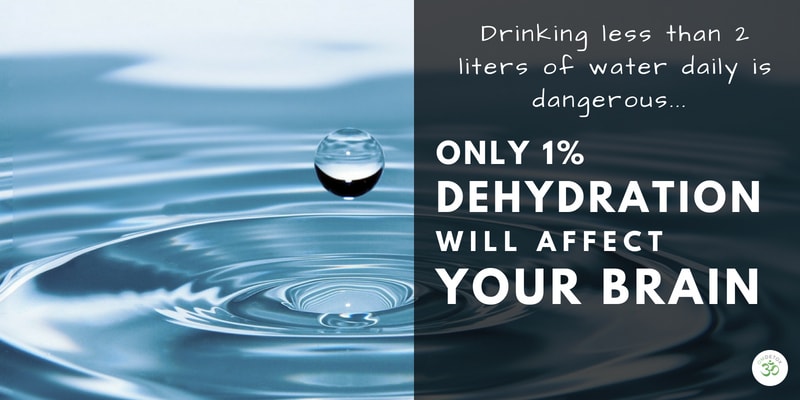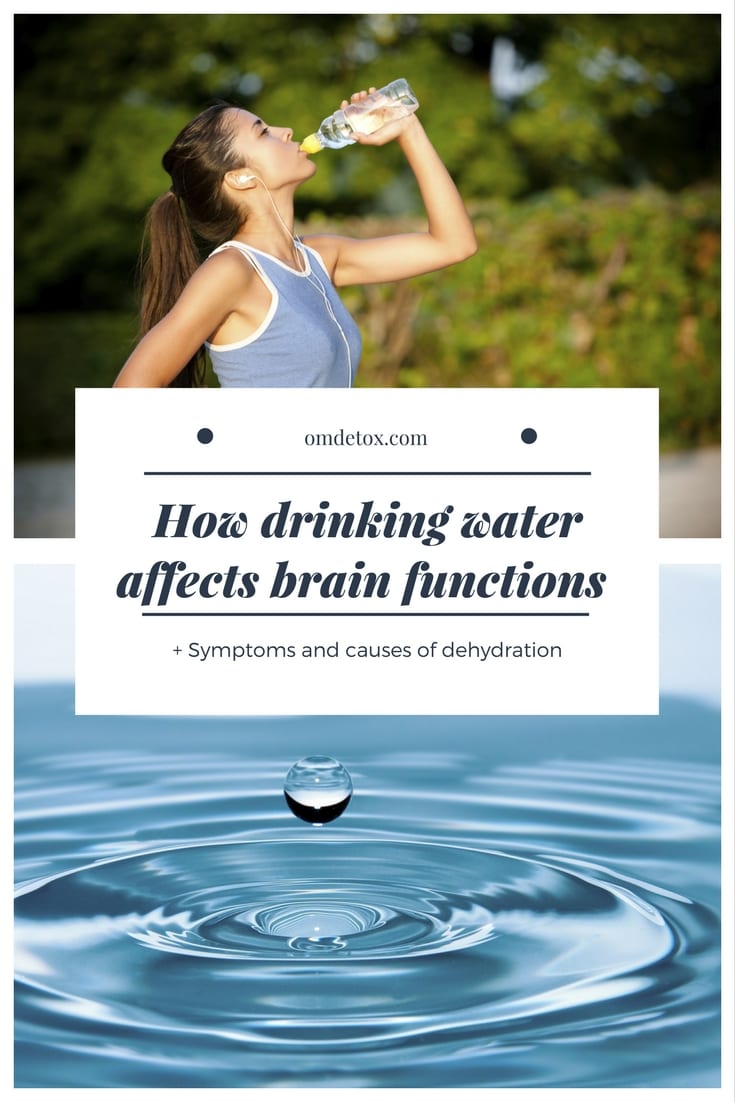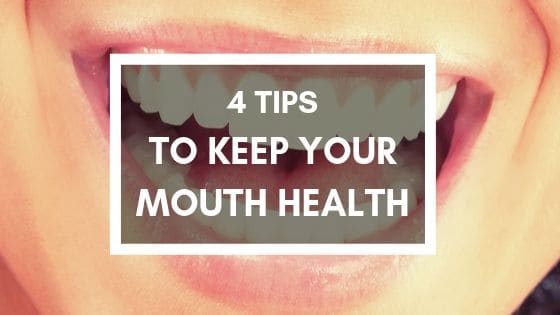
Nobody likes to suffer from brain fog…
Do you have problems with your memory?
Do you have trouble focussing and making decisions?
Do you sometimes feel confused?
Yes? Then this article is for you. Nobody should feel this way. And I’ll tell you what you need to do…
What you need is to drink a sufficient amount of water every day in order to satisfy your brain needs.
Today I’ll explain why water is so important for your brain, how to recognize the signs of dehydration, when you should drink water, and how much you need each day.
We’re made of water
Since childhood, our parents have taught us that it’s important to drink a few glasses of water daily if we want to avoid dehydration symptoms.
Were they right? Of course, they were!
Water is definitely the number one nutrient in your diet… Your body is made of more than 70 percent water.
We need water for almost everything… From temperature regulation, digestion, and detoxification, to brain activities and the good functioning of the nervous system.
That’s not all… your brain is 75% water.
So drinking enough water is absolutely essential for healthy brain functions!
Not drinking enough water can cause dehydration symptoms like headaches, brain fog, depression, and other problems like the inability to focus, poor memory, and sleeping disorders.
According to the Mayo Clinic, adults can lose more than 80 ounces (about 2 litres) of water daily through breathing, sweating, urination and bowel movements.
So people who drink less than 80 ounces of water in a day risk to see a negative impact on their brain function…
You see, when you are dehydrated, your brain actually shrinks…
Just exercising on a hot day (which can cause mild dehydration) can impair brain functions.
Your brain demands fuel at all time. Normally, brain cells tend to need more energy than other cells in our body.
Water is the provider of electrical energy for your brain’s functions. It is also required for the production of hormones and neurotransmitters.
When your brain receives all the water it needs, you can enjoy better mental capacities, rapid thinking, better focusing and greater creativity.
Being sufficiently hydrated can also help prevent attention deficit disorders (ADD).
It’s important to understand that the brain doesn’t store water. So that’s why it’s important to drink throughout the day.
Drinking a bunch of water in the morning is great, but don’t forget to continue drinking throughout the day…
Remember that if you drink less water than the amount you pee and sweat out, it can lead you to dehydration and impaired brain function…
The symptoms of dehydration
The most important dehydration symptoms are sleepiness, fatigue, confusion and lower levels of alertness.
Researchers have found that as soon as we drink water, the symptoms are immediately reversed.
The signs of dehydration may vary by age. You should be able to recognize them…
Here is a list of symptoms of dehydration in children and in adults.
Dehydration symptoms in children
- Dry mouth and tongue
- No wet diapers for three hours
- No tears when crying
- Sunken eyes
- Sunken cheeks
- Sunken soft spot on top of skull
- Lack of energy
- Irritability
Dehydration symptoms in adults
- Extreme thirst
- Dark-coloured urine
- Fatigue
- Dizziness
- Confusion
That’s not all…
Dehydration can lead the brain to shut down and run much slower.
The mental symptoms caused by dehydration include fatigue, dizziness, confusion, the inability to focus, stress, depression, anger, and sleeping disorders.
Did you know…
Just by being one percent (1%) dehydrated, you can experience a decrease of five percent (5%) in cognitive function?
And if your brain drops two percent (2%) in body water, it can affect your short-term memory, your focus and your ability to do math calculations.
Isn’t that crazy? Just 2%…
Water and mental illness
Some studies have shown that prolonged dehydration can even provoke the shrinking of brain cells. This usually happens in the elderly, because they tend to be chronically dehydrated.
Sufficient hydration may help reduce the risks of developing dementia, Alzheimer’s and Parkinson’s disease.
Additionally, water is an essential element for the delivery of nutrients and the detoxification of the brain. Toxins or metabolic waste must be eliminated with the help of water…
People diagnosed with illnesses such as autism, attention deficit disorder, depression, or head injuries are often dehydrated… which does not help a brain dysfunction!
Brain inflammation often results from an injury and can lead to the inability to detox the brain from toxins. And if you are also dehydrated, the detoxification problem can get worse…
Free radicals from chemicals, environmental pollutants, pesticides and heavy metals can circulate freely through your brain’s blood flow… That’s not a good thing!
The causes of dehydration
Dehydration can occur for simple reasons such as not drinking enough water because you are sick or too busy, or because you don’t have access to safe drinking water while traveling or hiking.
Dehydration can also occur after suffering from severe diarrhea or vomiting. It can cause a huge loss of water and electrolytes, in a short amount of time…
Fever may also cause dehydration. Generally, the higher your fever is, the more dehydrated you may be.
Excessive sweating is often the cause of dehydration in athletes and people who exercise vigorously, and who don’t replace the fluids they lost.
Certain medical conditions like undiagnosed diabetes, or prescription drugs like blood pressure medications and diuretics can cause dehydration because they make you urinate more.
Who can be dehydrated?
Anyone can become dehydrated, but certain people are more vulnerable, like infants and children.
The youngest are not able to tell us that they are thirsty, which puts them at risk for dehydration as parents cannot read their signs.
Children are most likely to experience diarrhea and vomiting, which can quickly lead to dehydration.
Infants and children are especially vulnerable to dehydration.
As we age, our body’s fluid reserves become smaller and our ability to conserve water is greatly reduced.
Unfortunately, our sense of thirst also becomes less acute when we are old…
These problems can become even worse because of certain chronic illnesses like diabetes and dementia.
How much water should you drink?
Providing enough water to your brain is essential if you want to keep it energized.
When you wake up, you should start the day with a morning routine that involves drinking a tall glass of water. This will activate your digestive fire and most likely provoke a bowel movement.
A tall glass of water will hydrate you after a good night of sleep.
Drink another glass of water before breakfast.
Coffee does not qualify as a replacement for water, and neither does soda or commercial juice. Only herbal teas, green tea, or infused water would be a good alternative.
During the day, keep a bottle of water with you at all time. Drinking regularly will permit to keep your brain oxygenated.
Make sure that you consume at least 2 litres of water daily.
Do you already drink that amount of water?
If you sometimes feel dehydrated, what dehydration symptoms have you felt?






